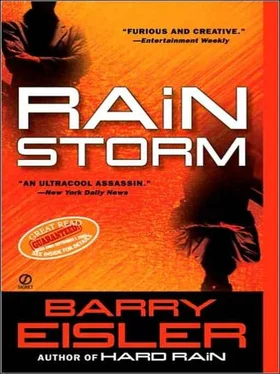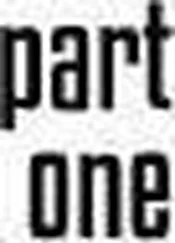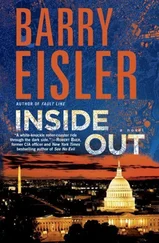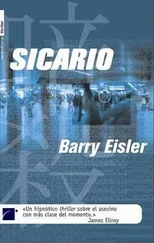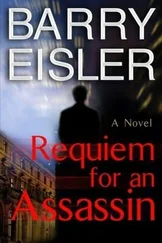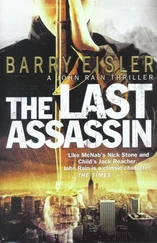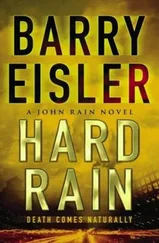“Are you still tracking Belghazi?” I asked.
“Of course.”
“Where is he now?”
“Still on Macau.”
I looked at him. “How do you know that?”
He shrugged. “Let’s just say there’s a certain satellite phone that Belghazi thinks is clean, that isn’t. Why are you asking?”
“Because it doesn’t make sense that he’d still be in Macau. Why is he still there, do you think?”
He shrugged. “We’ve already talked about this. He has business in the area, and he’s a gambler. We expected him to spend time at the casinos. He always does.”
I nodded. “So you’re telling me he’s still there-to gamble? This is a guy who learns that he’s been tracked to Macau, that one or maybe two contractors have been sent after him there, he’s sufficiently concerned about this chain of events to call in a favor in the form of a six-man Saudi team to eliminate the threat, the team gets wiped out and the threat is still at large, and you’re telling me he’s still there because he doesn’t want to interrupt his vacation?”
He looked at me, his cheeks flushing. After a long moment, he said, “You’re right. That was stupid of me, not changing my interpretation of his behavior in light of subsequent facts. You’re right. Let me think for a minute.”
“You can think on your own time. If you want me to continue this op, you need to share information with me, not spend more time meditating on things in solitude.”
His flush deepened, and I felt an odd twinge of sympathy. The kid was trying so hard. Managing characters like Dox and me would be tough on anyone, let alone someone as young as Kanezaki. He was actually doing well, too, and getting better all the time. He just wasn’t as good yet as he wanted to be, and that was frustrating him. But he’d get there.
“All right,” he said, “what do you want to know that I haven’t already told you?”
“First, I want to know about Crawley. I want to know his interest in this, so I can understand whether, why, and how he’s connected to Belghazi.”
“I don’t know,” he said, again not bothering to argue with me about the name. “I’m going to try to find out.”
So am I , I thought, thinking of the digital photos Dox had showed me. And I bet I can get more information than you can .
“Do that,” I said. “Now, let’s talk about Belghazi. You told me originally that he was in Southeast Asia to build up his distribution network, that Macau was just gambling, incidental to the real purpose of his trip.”
He nodded. “That seems to have been incorrect.”
“It does. So the question is, why Macau?”
He rubbed his chin. “Well, it’s got good port facilities. Likewise for Hong Kong, of course. So a possible transshipment point for the arms he’s selling to Jemaah Islamiah and Abu Sayyaf and other fundamentalist groups in the region.”
“But you’ve got other ports in the area, too. Macau itself, Singapore, Manila-”
“True, but Hong Kong is the busiest. Busiest in the world, in fact.”
“So?”
“So, if you’re trying to hide something, obscure its appearance, you might want to send it through a port that handles, say, sixteen million containers a year. A needle in a haystack. Also, these guys have learned not to rely too much on any particular facility. They ship small and distributed. Then, even if any given shipment gets interdicted, the balance gets through. And overall, the distributed approach makes it much harder to shut down the pipeline, or even to get an accurate understanding of its true size. And Belghazi has been moving around, you know. We intercepted calls from Kuala Lumpur and Bangkok.”
“Yeah, I know he was off Macau at one point,” I said, remembering Delilah telling me that he had meetings in the region. I thought for a moment, wondering if there was an opportunity there. “How closely can you track him in those other cities?” I asked.
“As closely as we can in Macau. Which is to say, not very. We can only pinpoint his location for as long as he stays on the phone, and he tends to keep his calls short. Once he’s off, we only know where the call came from.”
I nodded, realizing that none of this would be enough for me to use if Belghazi’s visits in the region were short-term. My best chance was still Macau, where something special seemed to be going on, and where I’d already familiarized myself with the local terrain.
Kanezaki said, “Maybe he’s in Macau for the same infrastructure reasons that have taken him elsewhere.”
“Maybe. But the thing is, if Macau were just one of many distribution points for him, he wouldn’t be there now. The benefit wouldn’t be worth the risk, because he knows he’s been tracked there. So why? More meetings there, like the ones he’s doing elsewhere?”
He shook his head. “Maybe, but I don’t think so. Southeast Asia is big for him now because of groups like Jemaah Islamiah. You don’t have anything like that on Macau. The players, and likewise the meetings, would be elsewhere.”
“Well, something is going on there. If you can find out what that is, why he’s really there, what he’s really doing, who he’s really meeting with, I’ll have a much better chance of getting close to him again.”
“I understand.”
I nodded slowly, then looked at him. Or rather I looked through him, as though he was somehow immaterial, a thing that mattered to me only slightly, something I could leave on or turn off as easily as I might flip a light switch. I said, “Kanezaki, I hope none of what you’ve told me today is untrue.”
He looked at me, keeping his cool. “The facts are true,” he said. “The speculation is only that. Keep in mind the difference before you decide to go precipitous on me, okay?”
I nodded again, still looking through him. “Oh, don’t worry about that,” I said.
I LEFT KANEZAKI and made my way to the Fiorentina trattoria, a restaurant in the new Grand Hyatt hotel, where I had told Tatsu to meet me. I arrived early, as I always do, and sipped iced coffee from a tall glass while I waited. I decided that I liked the restaurant, although not without some ambivalence. It was sleek without feeling artificial, with décor of leather and wood and other natural materials; good lighting; and lots of clean, vertical lines. Still, there was something vaguely disconcerting about how suddenly it, and the surrounding hotel and shopping complex, had sprung up. None of it had been here when I was living in Tokyo, and yet here was a virtual city within the city, which the planners had christened Roppongi Hills. You could almost imagine the Titan gods of the metropolis whipping a white sheet from over their newest creation and proclaiming with a flourish and a falsely modest bow that It Was Good.
And maybe it was good. Certainly the people around me seemed to be enjoying it. Still, the place had no history, and, somehow, no context. It was attractive, yes, but it all felt fearlessly forward-looking, miraculously unmindful of the past. And therefore, I thought, oddly American.
I smiled. No wonder I felt ambivalent. It was a transplant, like me.
An hour later, I saw Tatsu walk in through the lobby entrance, pause, and scope the room. A waitress approached and said something to him, probably an inquiry about seating him, and he responded by tilting his head in her direction but without taking his eyes off the room. Then he saw me. He nodded his head in recognition and muttered something to the waitress, then shuffled over.
I smiled as he approached and rose from my seat. There was something eternally endearing about that trademark shuffle, and about the interchangeably rumpled dark suits that always accompanied it. I realized how glad I was that Tatsu and I had found a way to live under a flag of truce. Partly because he could be such a formidable adversary, of course, but much more because he had proven himself a fine friend, albeit not one above requesting a “favor” when practicality demanded.
Читать дальше
